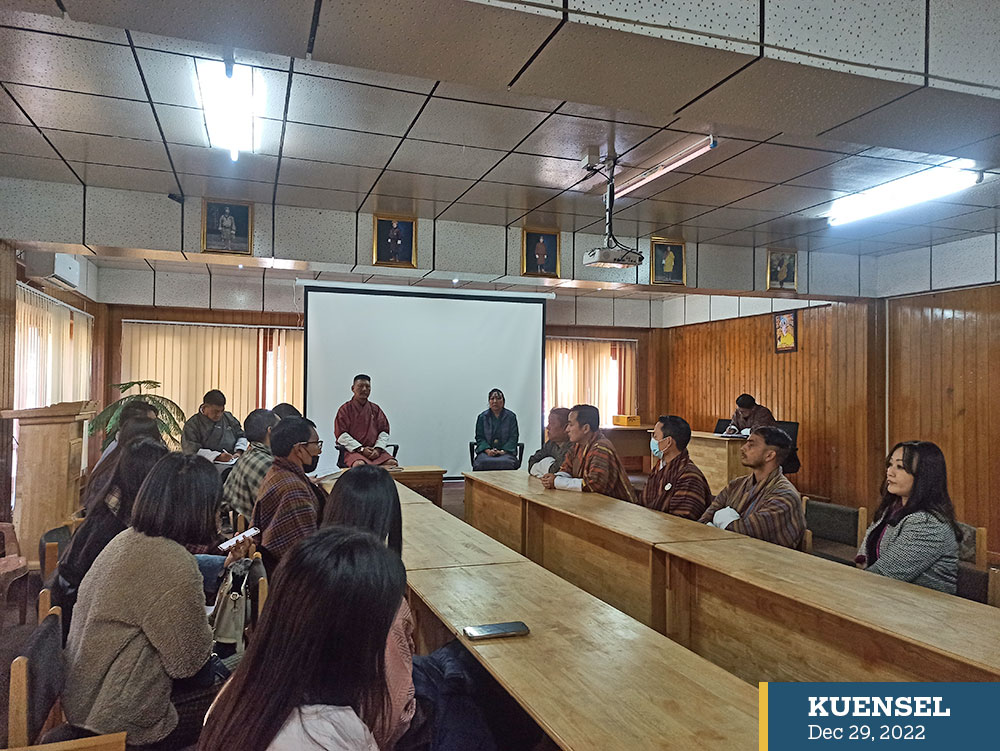Thukten Zangpo
The Bhutan Chamber of Commerce and Industry (BCCI) on behalf of the businesses decided to submit to the Royal Monetary Authority (RMA) to discontinue the six-month observation period at the members’ meeting on December 27.
In October this year, RMA directed that non-performing loans (NPL) that have become performing through repayments made by the borrowers shall be placed under the ‘observation period’ for a period of six months with no bank guarantee and letter of credit.
The observation period, the president of the Construction Association of Bhutan (CAB), Trashi Wangyel, said deprived the clients of credit facilities including availing letter of credits or bank guarantee.
“This has impeded contractors from being able to bid or take part in competitive bidding processes where such banking facilities are required,” he added.
He said that a majority of contractors painstakingly paid the overdue to banks in anticipation that post-covid-19 normalcy would bring new opportunities and business, but it has been a classic case of banks providing umbrellas when sun shines but taking them away when it rains.
“The person or entity under such observation devoid of these facilities and with loss of prospects is bound to fall back with their repayments within these six months and the cycle of NPL will repeat and this time with more critical outcomes,” Trashi Wangyel said.
A bank guarantee, which is 10 percent of the total contract value, has to be submitted as a performance bond to the procuring agencies. It is a guarantee that the contractor will execute the contract. Otherwise, the procuring agencies can take the 10 percent.
Executive Director of the CAB, Tshering Younten, said that the government provided time extension for the construction works under the fiscal measures.
However, without bank guarantee, he said that procuring agencies do not accept the extension of work leading to termination of works.
Tshering Younten also said that most of the contractors have more than one company and the construction companies have shareholders. “Even if a company or shareholder is under NPL, it affects all.”
BCCI’s President, Tandy Wangchuk, said that bank guarantees are a zero risk in nature since the borrowers have the fixed assets mortgaged with the banks with loan to assets value of 70 percent for term loans and 50 percent for the overdraft loans.
He said that if the government could re-assess the asset value for the collateral used to avail loans at current market rate, an additional loan amount could be pumped into the economy.
The Hotel and Restaurant Association of Bhutan (HRAB) submitted that the hotels under the NPL during the pandemic to defer the loan period for two years like the other hotels with performing loans.
The association also asked for interest rate reduction from 10 percent to 7 percent for the loans under the deferment period.
Executive Director of the HRAB, Sangeeta Rana, said that the association requested before the opening of the tourism to the government and the central bank to reduce the interest rate for the loans from 10 percent to 5 percent for the deferment period.
However, she said that the government declined the request, assuring that the larger group of tourist arrival is expected in coming months and the hoteliers can repay the loans.
“The scenario is different now; there are hardly any tourist coming and the association would request for the interest reduction to 7 percent,” Sangeeta Rana said.
The association also asked if 10 year-tax holiday for hotels affected by the pandemic could be considered for another two years.


